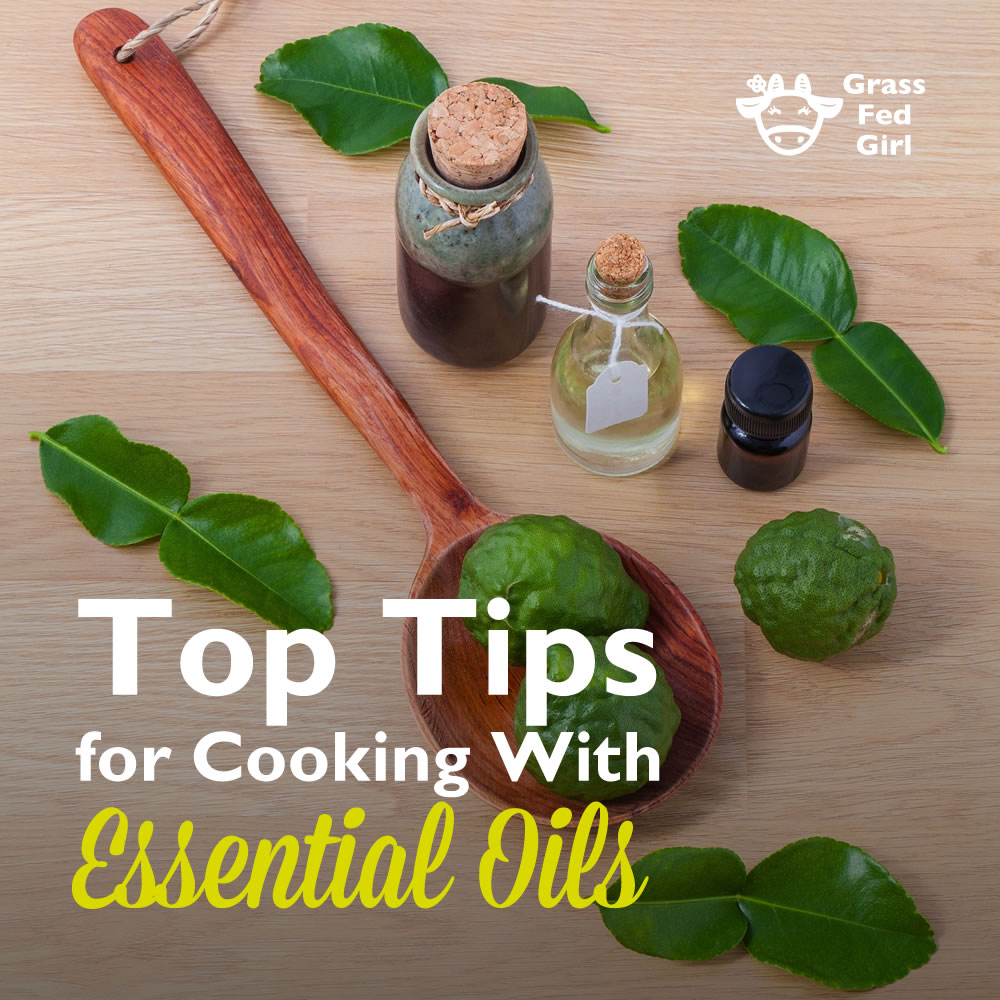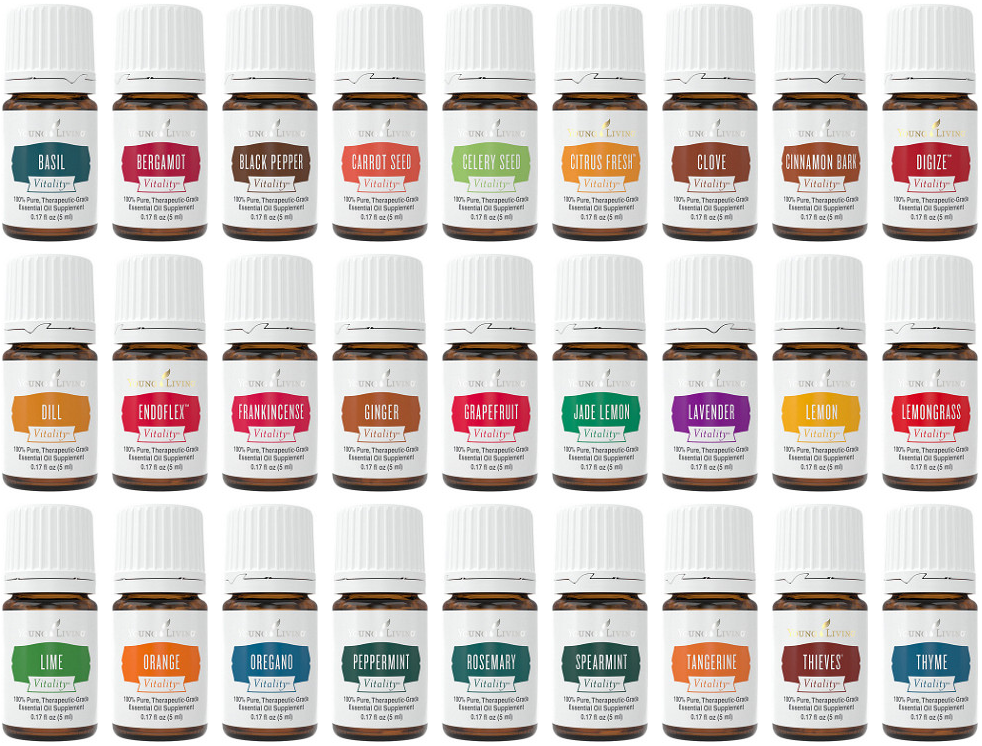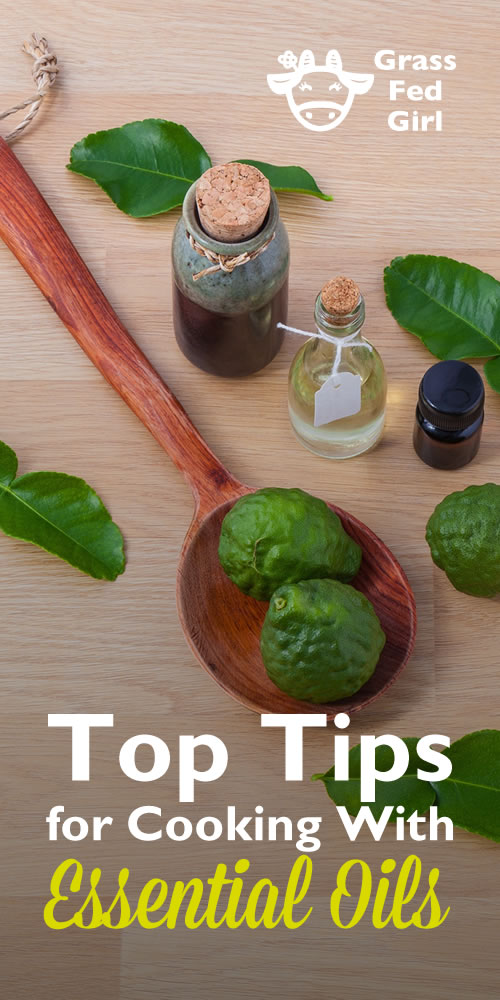
You maybe wondering about the best tips for cooking with essential oils because I have wondered the same thing. My family and I have learned a great deal about how to use essential oils in many different ways since I started using them two years ago which was in an effort to reduce the toxins in my home and personal care routine. More recently it was a fun challenge to start using them in the kitchen. The use of essential oils in cooking is nothing new. After all, with just a drop or two these oils, you can transform an ordinary dish or even a drink into something unique and more interesting.
Apart from the possible health benefits you can get from essential oils, using them in cooking can help you save on costs in the long run. For one, essential oils last indefinitely while dried herbs and ground spices are only good for up to 3 years. In addition, you only need a small amount in cooking because they come in such concentrated qualities. The rule of thumb is to use one drop of essential oil for every teaspoon of dried herbs or spices a recipe calls for.
I love fresh herbs but sometimes I can’t get to the store for them or they go bad before I can use them up. That is why I love having these on hand for added flavor and fun all year.
One important thing to remember about using essential oils in food is that not all the oils available on the market are safe to consume. Make sure you look for essential oils which are labeled 100% pure. The packaging should also indicate that they are “Food Grade” and for internal use. Young Living has a wonderful line of vitality essential oils that is great for making culinary delights while supporting the health and wellness of your family (order here).

Here are examples of the Best Tips for Cooking with Essential Oils:
Citrus oils
These fragrant oil can make wonderful refreshing mocktails in the summer, just add a few drops to water with ice and stevia to cool off and skip the $5 trip to Starbucks.
Bergamot Oil
Bergamot is a fruit whose oil imparts a fresh, citrus note that has a tart aftertaste. It’s perfect in summer dishes, such as grilled zucchini and eggplant. It’s also ideal for use in vegan and gluten-free baked goods that call for orange or lemon zest while adding a drop or two of bergamot oil can elevate a glass of hot or cold tea into a special afternoon drink.
Celery Seed Oil
A great addition to brines and pickling mixtures, celery seed essential oil provides an earthy and grassy note that makes salad dressings even tastier. Use 1-2 drops to give depth of taste to coleslaw and pumpkin soup.
Clove Oil
Use clove essential oil for recipes that call for the ground spice. Popular during the holidays as it provides the necessary flavor notes to dairy free eggnog and homemade apple cider, clove oil can also make your everyday, grain-free porridge comforting and festive at the same time.
Dill Oil
Give your Scandinavian and Russian dishes an authentic flavor by using dill essential oil in recipes that call for fresh or dried dill. It’s also a tasty addition to many vegetable recipes as well as dressings and dips without the chopping and the mess.
Black Pepper Oil
Known as the “king of spices,” black pepper is one of the most commonly used seasonings in the world. Because ground black pepper loses its flavor over time, black pepper essential oil is a great substitute which can be used in marinades, rubs, and soups. Add a few drops to salad dressings, salsa, and guacamole for a kick of flavor without the unpleasant experience of biting into too large chunks of pepper.
Cinnamon Bark Oil
Perfect for baking, cinnamon bark essential oil can be used in any recipe that requires ground cinnamon. Spice up hot, grain-free cereal and give a pumpkin smoothie a twist with a drop of cinnamon bark essential oil. You can also use it in marinades to lend authenticity to savory Middle Eastern dishes.
Basil Oil
Basil oil is wonderful for adding Italian flair to your tomato sauce. Just use a toothpick inserted into the bottle then swirl it around in the top of your pan at the end of the cooking process. A side benefit of Basil essential oil is that it is great for healing your guests to feel relaxed and friendly.
Rosemary oil
Make a delightful roasted chicken by marinating your pastured bird in rosemary before cooking. There won’t be any pesky leaves or stems to remove and the aroma will fill your kitchen while cooking making everyone feel warm and welcome.
When cooking with essential oils, keep in mind that heat can alter their flavor and quality so add the oils toward the end of the cooking process to get the most benefits. Leave a comment in the notes about how you cook with essential oils at home.
Ginger oil
This essential oil can be great to add Asian flavor to stir fry and curries. Ginger root has been used for centuries for digestive support. Just add a few drops to your slow cooker or instal-pot. I have a great stir fry with cauliflower here.
Are you wanting to try the vitality line of essential oils? I can’t go a day without them in my kitchen. Many of them come in the premium starter kit here.
Please Pin It:




